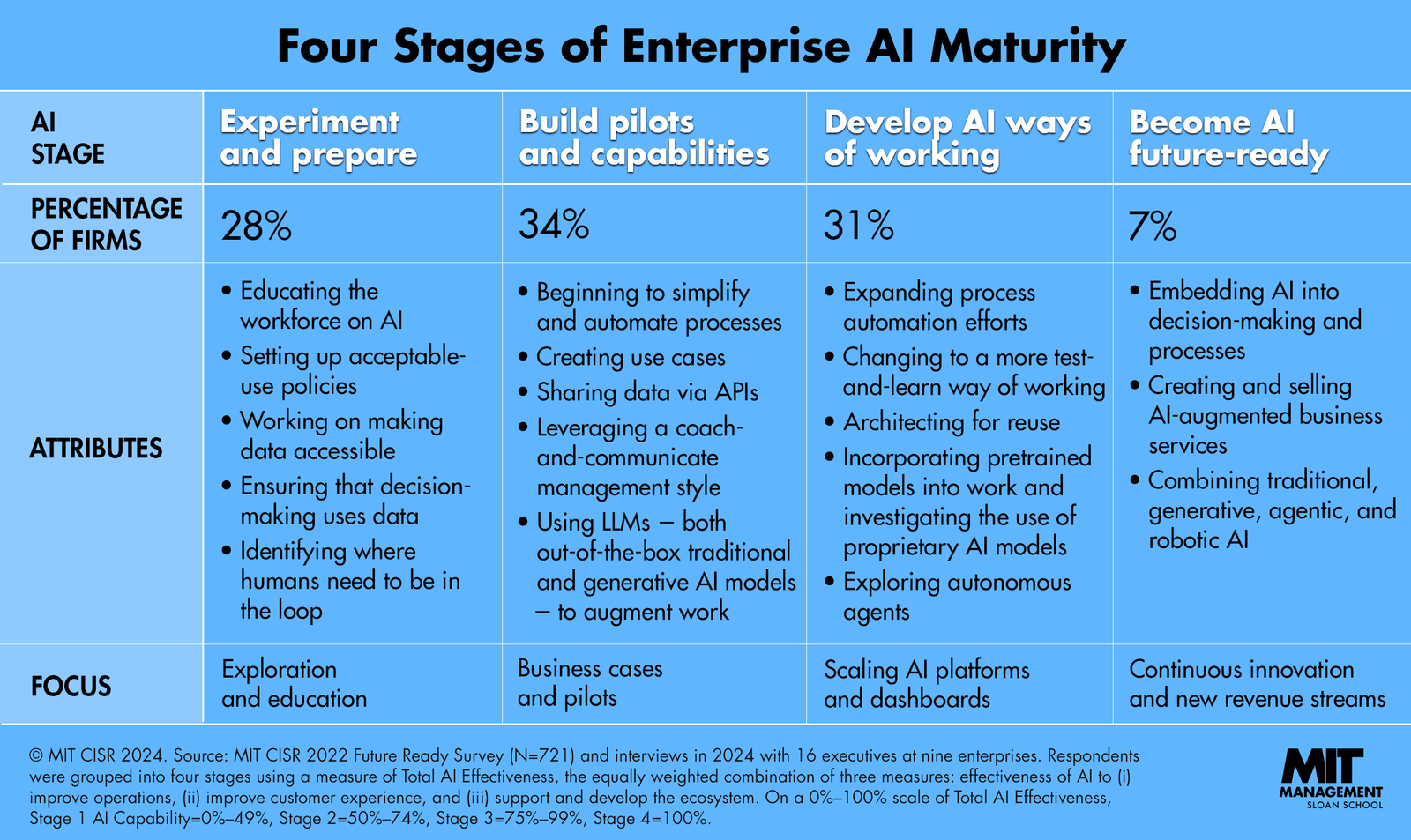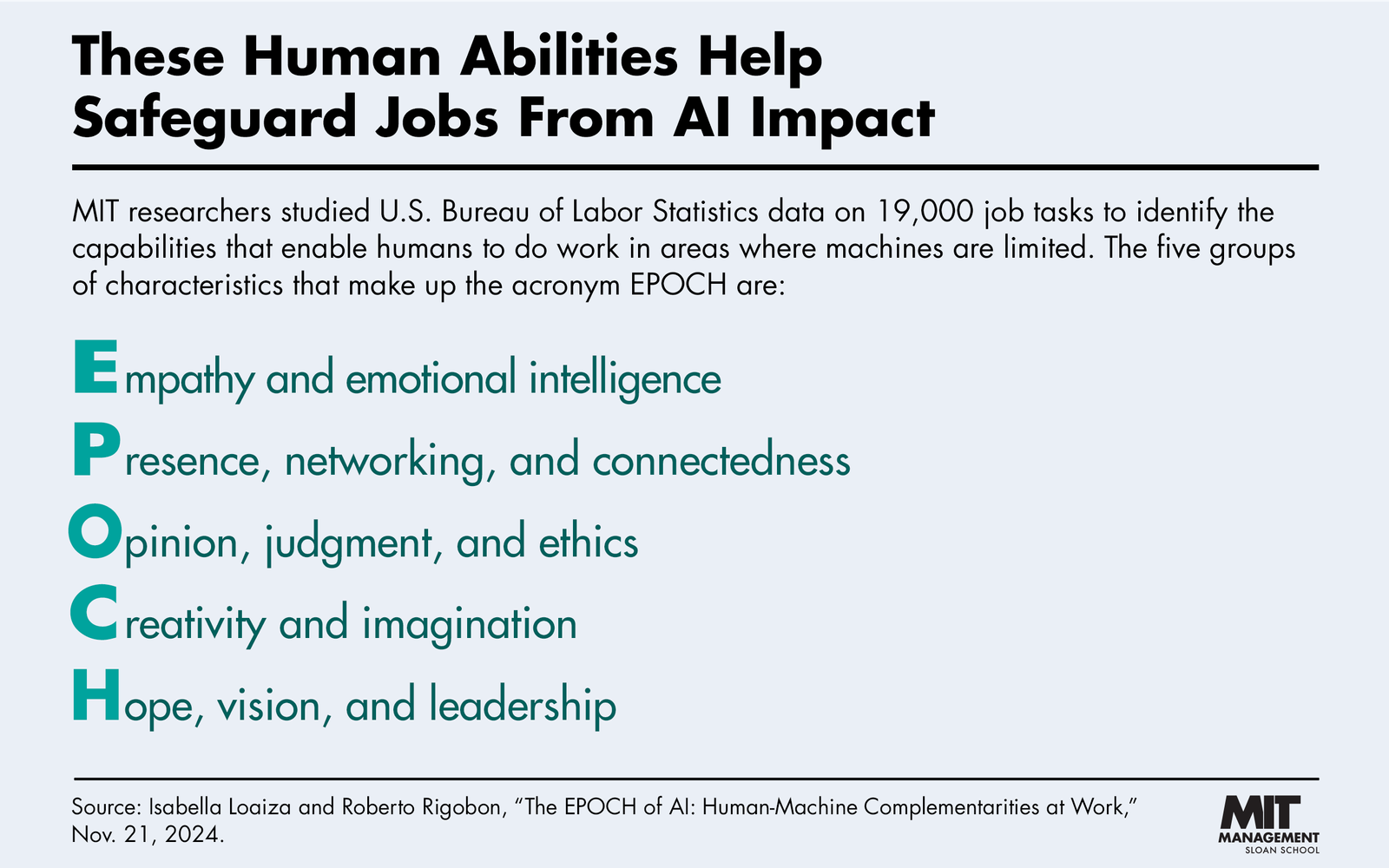Developing an effective AI implementation strategy isn’t optional anymore—it’s essential for business survival. According to recent McKinsey research, 88% of organizations now use AI in at least one business function. But here’s the question keeping business leaders awake: Is our AI implementation strategy setting us up for success or failure?
At Origo, we believe successful AI adoption isn’t about replacing your team with technology. It’s about augmenting human capabilities and empowering your people to do their best work. That’s why we’re sharing insights from MIT Sloan and Harvard Business School on implementing AI in ways that truly work for enterprises and SMEs.
What You’ll Learn in This AI Implementation Guide
This comprehensive guide covers:
- How to assess your organization’s AI maturity level
- When to use generative AI versus traditional machine learning
- Which human capabilities will become more valuable with AI
- Research-backed strategies for AI-powered teamwork
- Practical steps to implement AI successfully
Understanding Your AI Maturity: The MIT Framework

Before rushing to implement the latest AI tools, you need to understand where your organization stands today. MIT’s Center for Information Systems Research studied 771 companies and identified a clear pattern.
The Four Stages of AI Maturity
Organizations progress through four distinct stages of AI implementation. Companies in early stages typically perform below their industry average, while those reaching advanced stages consistently outperform competitors.
Stages 1-2: Experiment and Build Capabilities
Early-stage companies are experimenting with AI and building pilot projects. These organizations show below-average financial performance as they invest in learning and infrastructure.
Stages 3-4: Develop AI Ways of Working and Become Future-Ready
Advanced-stage companies have systematic AI implementation and future-ready strategies. These organizations demonstrate above-average financial performance and competitive advantages.
The research reveals a critical insight: moving beyond experimentation to systematic implementation creates real business value.
How to Assess Your AI Maturity Level
MIT research scientist Stephanie Woerner recommends bringing together senior technical and data leaders to evaluate your current position. Ask these questions:
- Which stage best describes our AI capabilities today?
- What are our AI aspirations for the next 12-24 months?
- Which enterprise capabilities need development?
- What skill gaps exist in our team?

“No matter where you are, be bold,” Woerner advises. Companies that act decisively on AI implementation see stronger results than those who hesitate.
This is where Origo adds value. Many organizations lack the cloud infrastructure, AI expertise, or innovation management capabilities needed for this assessment. We bridge that gap with our human-centered approach, helping companies navigate digital transformation smoothly.
Choosing the Right AI Technology for Your Needs
Generative AI has dominated headlines since ChatGPT launched. While impressive, generative AI isn’t always the optimal solution for every business challenge.
MIT Sloan professors Swati Gupta and Rama Ramakrishnan explain when different AI approaches work best.
Traditional Machine Learning: When to Use It
Machine learning excels at specific tasks:
- Predicting outcomes based on historical data patterns
- Working with structured datasets and numerical information
- Providing consistent, repeatable results
- Explaining decision-making processes for compliance
Common applications include fraud detection, demand forecasting, customer churn prediction, and quality control.
Generative AI: Optimal Use Cases
Generative AI shines when you need:
- Content creation (text, images, code)
- Information summarization and transformation
- Creative exploration and ideation
- Natural language interaction and assistance
Applications include customer service chatbots, content generation, code assistance, and creative brainstorming.
The Winning AI Strategy: Hybrid Approaches
The most successful organizations combine both approaches. Machine learning handles predictive analytics and data-driven decisions, while generative AI assists with communication, ideation, and content creation.
Origo’s methodology: We don’t push technology for technology’s sake. Our consultants analyze your specific business challenges and recommend appropriate AI solutions—whether machine learning, generative AI, or hybrid implementations tailored to your needs.
Building Human Capabilities That Complement AI
AI will transform jobs across industries. MIT research shows that jobs emphasizing certain human capabilities are growing faster despite AI adoption.
The EPOCH Framework for Human Skills
MIT researchers Isabella Loaiza and Roberto Rigobon identified five critical capabilities that complement AI effectively:
E – Empathy and Emotional Intelligence
Understanding human emotions, building relationships, and providing compassionate support remain uniquely human strengths. AI cannot replicate genuine empathy.
P – Productivity Through Technology
Workers who effectively leverage technology tools, including AI, multiply their output and impact. This means learning to collaborate with AI systems.
O – Original and Creative Thinking
Generating novel ideas, thinking unconventionally, and solving problems creatively become more valuable as AI handles routine tasks.
C – Complex Problem-Solving
Tackling ambiguous challenges, synthesizing diverse information, and making judgment calls in uncertain situations require human insight.
H – Human Interaction and Collaboration
Building trust, negotiating, leading teams, and facilitating collaboration remain essential human skills in AI-augmented workplaces.

Investing in Your Team’s Future
Analysis of U.S. Bureau of Labor Statistics data confirms that jobs emphasizing EPOCH capabilities show stronger employment growth than those that don’t.
The key insight: AI doesn’t eliminate the need for human skills—it elevates which human capabilities matter most. Organizations that invest in developing these capabilities position their teams to thrive.
Harvard Research: AI as Your Team’s Newest Collaborator
Groundbreaking Harvard Business School research studied 791 professionals at Procter & Gamble, revealing that AI can function as a “cybernetic teammate” delivering benefits similar to human collaborators.
Impressive Results from AI-Human Collaboration
The findings demonstrate AI’s impact on team performance:
Teams using AI were three times more likely to produce ideas ranking in the top 10% compared to individuals working without AI assistance.
Individual contributors using AI matched the quality of two-person teams working without technology. This democratizes innovation capabilities across organizations.
Perhaps most surprising: employees using AI reported higher enthusiasm, energy, and job satisfaction, with reduced anxiety and frustration compared to those working without AI support.
This validates Origo’s philosophy: properly implemented AI makes work more fulfilling, not more stressful. When technology augments human capabilities thoughtfully, both productivity and workplace satisfaction improve.
Breaking Down Organizational Silos with AI
The P&G research revealed another fascinating outcome. Employees using AI produced ideas successfully blending technical and commercial elements, regardless of their department or original expertise.
Research and development staff contributed commercial insights. Marketing professionals offered technical solutions. AI enabled holistic thinking across traditional boundaries.
Harvard researcher Fabrizio Dell’Acqua explains: “Now we have many more parts of any given company that can contribute great ideas. Much less relevant is the traditional conception of who has task and domain expertise.”
Four Research-Backed Recommendations for AI Implementation
Based on Harvard’s findings, here are practical strategies for optimizing AI-human collaboration in your organization.

1. Reconceptualize AI as a Teammate, Not Just a Tool
This mental shift unlocks more effective interactions. Stop thinking about AI as software you operate. Start approaching it as a collaborator you work alongside.
Focus on managing your relationship with AI rather than understanding technical specifications. This mindset change leads to better outcomes and more creative problem-solving.
2. Provide Targeted Training on AI Interactions
Even brief, hands-on training sessions dramatically improve results. The research shows that teaching employees to treat AI as a collaborative thought partner rather than a search engine transforms effectiveness.
Training doesn’t require extensive time investment. Focus on practical skills:
- How to frame questions effectively
- When to push back on AI suggestions
- How to iterate and refine AI outputs
- Treating AI as a brainstorming partner
3. Match Your AI Strategy to Your Specific Goals
Different goals require different approaches:
For efficiency gains: AI-enabled individuals achieve impressive productivity improvements. This works well for streamlining existing processes.
For breakthrough innovation: AI-augmented teams consistently produce the highest-quality ideas. Combining human collaboration with AI amplifies creative thinking.
“If you want to empower an individual to be as effective as a team, give them AI,” says Dell’Acqua. “But if you want to be in that top 10% of performers, a full human team plus AI seems like the recipe for success.”
4. Address AI Adoption Fears Through Empowerment
Resistance to AI often stems from replacement anxiety. Focus training on how AI expands rather than replaces human capabilities.
Emphasize collaborative rather than competitive aspects of human-AI interaction. When employees see AI as their ally rather than their replacement, adoption becomes natural and enthusiastic.
Research shows that workers using AI feel more empowered and excited about their work, not threatened.
Making AI Implementation Real: Origo’s Approach
At Origo Solutions, we’ve spent years helping enterprises and SMEs adopt cloud technologies, develop innovative solutions, and modernize operations. Our AI implementation approach follows proven principles:
We Start With Your People
Technology serves humans, not the other way around. We design AI implementations that augment your team’s capabilities and make their work more meaningful and fulfilling.
Human-centered design isn’t just philosophy—it’s practical strategy. When people feel supported rather than threatened, AI adoption succeeds.
We Provide the Expertise You Need
Most companies don’t have AI specialists on staff. That’s normal. We bring deep expertise in:
- Cloud infrastructure for AI applications
- AI technology selection and integration
- Innovation management and change leadership
- Training and organizational development
You focus on your core business while we handle the technical complexity.
We Ensure Smooth Transitions
Change is challenging for every organization. We guide your team through digital transformation with:
- Clear communication at every step
- Practical, hands-on training programs
- Ongoing support and troubleshooting
- Regular check-ins and adjustments
Our goal is seamless adoption that minimizes disruption while maximizing value.
We Measure What Matters
Success isn’t about implementing the latest technology—it’s about achieving your business goals. We help you:
- Define meaningful success metrics
- Track progress toward real outcomes
- Adjust strategies based on results
- Demonstrate ROI to stakeholders
Your Next Steps: Moving Forward with AI
The gap between AI leaders and laggards is widening rapidly. Organizations that thoughtfully implement AI are pulling ahead in performance, innovation, and employee satisfaction. Those that hesitate or implement AI poorly risk falling behind competitors.
But here’s the encouraging news: you don’t have to figure this out alone.

How Origo Helps Enterprises and SMEs
Whether you’re an enterprise looking to scale AI across multiple departments or an SME taking your first steps into artificial intelligence, Origo can help you:
Assess and Strategize
We evaluate your current AI maturity and create a strategic roadmap aligned with your business goals.
Select the Right Technologies
We recommend appropriate AI technologies for your specific challenges, avoiding both over-investment and under-investment.
Design Training Programs
We develop training that empowers your team to work effectively with AI, focusing on practical skills and confidence-building.
Implement Solutions
We implement AI solutions that deliver measurable business value while respecting your organizational culture.
Build Innovation Culture
We help establish a culture of innovation that embraces technological change while keeping humans at the center.
Start Your AI Implementation Journey Today

Ready to implement AI the right way? Let’s discuss how Origo can help your organization harness AI to empower your people and drive real business results.
Our human-centered approach ensures that AI augments your team’s capabilities rather than replacing them. We bring the expertise you need for successful implementation while ensuring smooth transitions that work for your organization.

At Origo, we don’t just implement technology, we empower your success.
info@origo.ec